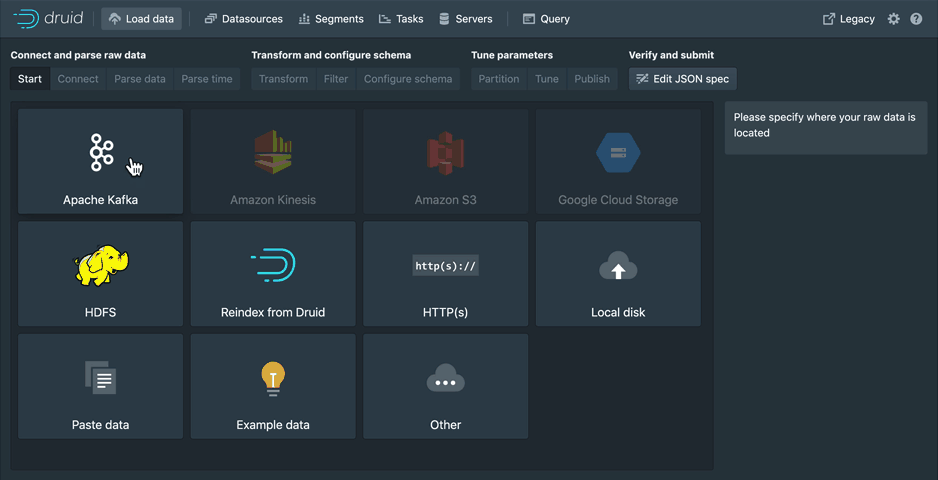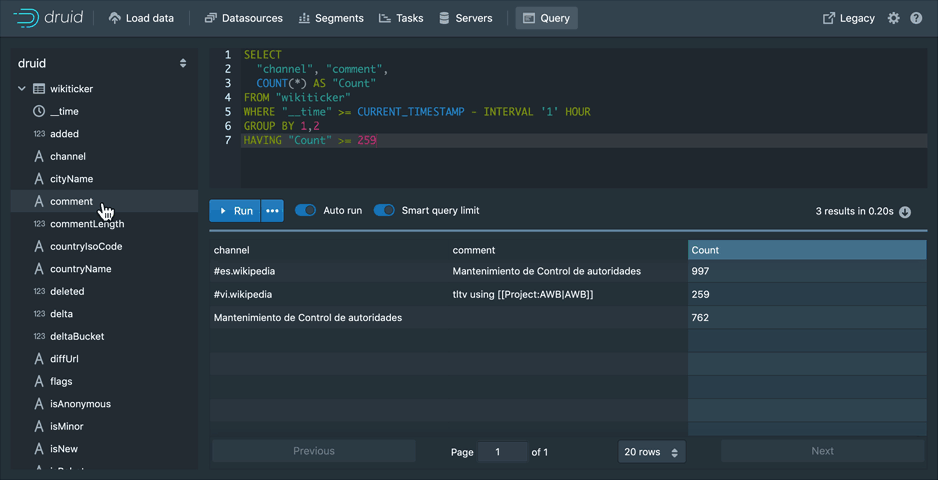This commit is a first draft of the revised integration test framework which provides: - A new directory, integration-tests-ex that holds the new integration test structure. (For now, the existing integration-tests is left unchanged.) - Maven module druid-it-tools to hold code placed into the Docker image. - Maven module druid-it-image to build the Druid-only test image from the tarball produced in distribution. (Dependencies live in their "official" image.) - Maven module druid-it-cases that holds the revised tests and the framework itself. The framework includes file-based test configuration, test-specific clients, test initialization and updated versions of some of the common test support classes. The integration test setup is primarily a huge mass of details. This approach refactors many of those details: from how the image is built and configured to how the Docker Compose scripts are structured to test configuration. An extensive set of "readme" files explains those details. Rather than repeat that material here, please consult those files for explanations. |
||
|---|---|---|
| .github | ||
| .idea | ||
| benchmarks | ||
| cloud | ||
| codestyle | ||
| core | ||
| dev | ||
| distribution | ||
| docs | ||
| examples | ||
| extendedset | ||
| extensions-contrib | ||
| extensions-core | ||
| helm/druid | ||
| hll | ||
| hooks | ||
| indexing-hadoop | ||
| indexing-service | ||
| integration-tests | ||
| integration-tests-ex | ||
| licenses | ||
| processing | ||
| publications | ||
| server | ||
| services | ||
| sql | ||
| web-console | ||
| website | ||
| .asf.yaml | ||
| .backportrc.json | ||
| .codecov.yml | ||
| .dockerignore | ||
| .gitignore | ||
| .lgtm.yml | ||
| .travis.yml | ||
| CONTRIBUTING.md | ||
| LABELS | ||
| LICENSE | ||
| NOTICE | ||
| README.md | ||
| README.template | ||
| check_test_suite.py | ||
| check_test_suite_test.py | ||
| it.sh | ||
| licenses.yaml | ||
| owasp-dependency-check-suppressions.xml | ||
| pom.xml | ||
| upload.sh | ||
README.md
Website | Documentation | Developer Mailing List | User Mailing List | Slack | Twitter | Download
Apache Druid
Druid is a high performance real-time analytics database. Druid's main value add is to reduce time to insight and action.
Druid is designed for workflows where fast queries and ingest really matter. Druid excels at powering UIs, running operational (ad-hoc) queries, or handling high concurrency. Consider Druid as an open source alternative to data warehouses for a variety of use cases. The design documentation explains the key concepts.
Getting started
You can get started with Druid with our local or Docker quickstart.
Druid provides a rich set of APIs (via HTTP and JDBC) for loading, managing, and querying your data. You can also interact with Druid via the built-in console (shown below).
Load data
Load streaming and batch data using a point-and-click wizard to guide you through ingestion setup. Monitor one off tasks and ingestion supervisors.
Manage the cluster
Manage your cluster with ease. Get a view of your datasources, segments, ingestion tasks, and services from one convenient location. All powered by SQL systems tables, allowing you to see the underlying query for each view.
Issue queries
Use the built-in query workbench to prototype DruidSQL and native queries or connect one of the many tools that help you make the most out of Druid.
Documentation
You can find the documentation for the latest Druid release on the project website.
If you would like to contribute documentation, please do so under
/docs in this repository and submit a pull request.
Community
Community support is available on the druid-user mailing list, which is hosted at Google Groups.
Development discussions occur on dev@druid.apache.org, which you can subscribe to by emailing dev-subscribe@druid.apache.org.
Chat with Druid committers and users in real-time on the Apache Druid Slack channel. Please use this invitation link to join and invite others.
Building from source
Please note that JDK 8 or JDK 11 is required to build Druid.
See the latest build guide for instructions on building Apache Druid from source.
Contributing
Please follow the community guidelines for contributing.
For instructions on setting up IntelliJ dev/intellij-setup.md







